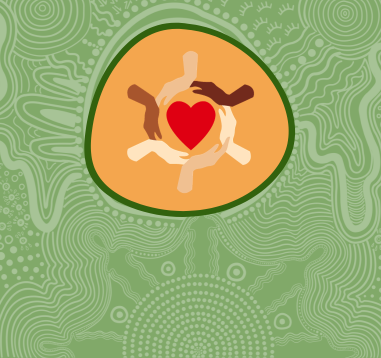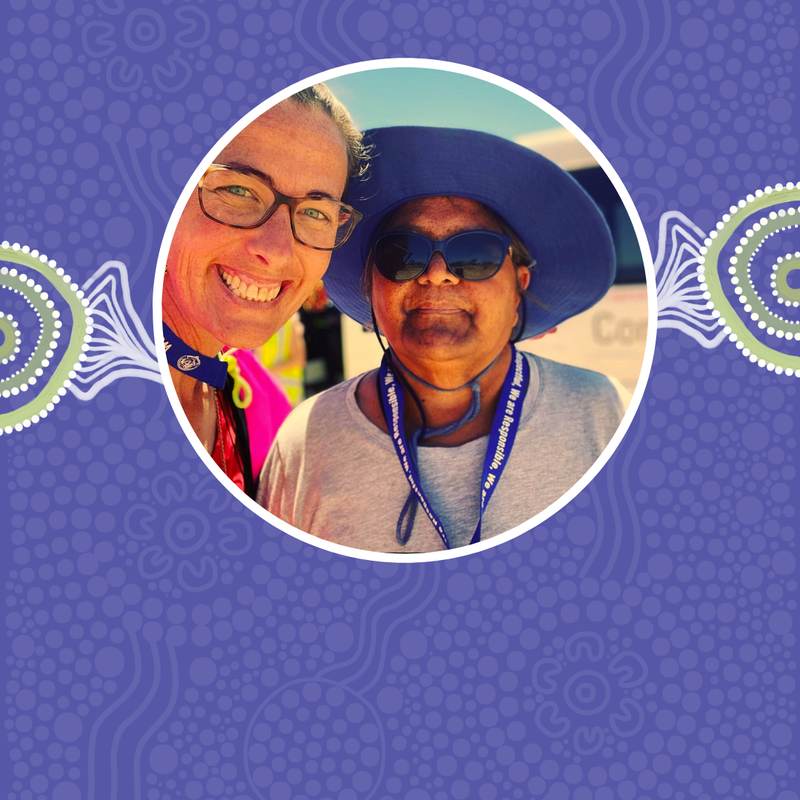WINGARU EDUCATION BLOG
Aboriginal Education for Everyone
Everyone loves to have a yarn, about all sorts of things. Here, you’ll find hundreds of articles about a broad range of things, including stories, educational thought-leadership pieces, teaching trends, social issues and more.
Enjoy and share.
WINGARU EDUCATION BLOG
Aboriginal Education for Everyone
Everyone loves to have a yarn, about all sorts of things. Here, you’ll find hundreds of articles about a broad range of things, including stories, educational thought-leadership pieces, teaching trends, social issues and more.
Enjoy and share.
Cultural Safety in Early Intervention
Figures show that Aboriginal and Torres Strait Islander children are more likely to need early intervention services – such as speech therapy, occupational therapy and physical therapy – than other children, and the gap between First Nations kids (24%) and non-Indigenous kids (10%) is significant.
Now More Than Ever
This year, the theme for Reconciliation Week (held every year 27th May – 3rd June) is ‘Now More Than Ever’ and while it is still a few weeks away so might not be on your radar yet, I want to talk about the theme and what it means for teachers – because it’s an important one.
2024 Easter Craft
It wouldn’t be Easter without Easter craft! Easter craft will look different in every classroom and this year we have a new basket to add to our collection of Easter craft for you to consider. If you are a subscriber we also have a super cute bilby ear activity for you - check it out in the additional resources section of the dashboard.
Using Research Cards in the Classroom
As dedicated educators, we strive to instill curiosity and critical thinking in our students, constantly hunting for tools and strategies that encourage students to utilise enquiry skills, develop sound research practices, and exercise their developing critical-thinking skills. Critical thinking is one of the many important things children learn at school; when it comes to Aboriginal perspectives, it is one of the most important skills we can nurture.
Aboriginal Languages in the Classroom
Including First Nations languages in your classroom is a great way to include and embed Aboriginal culture throughout your teaching program. It’s fun to learn new words and phrases, and it helps keep our languages alive, encouraging students to understand Aboriginal and Torres Strait Islander language as part of the oldest continuous culture on earth.
Get started with Aboriginal Perspectives in 2024
And just like that 2024 is here! I love the start of a new year and the potential it holds. The fresh start, an opportune time to establish a new approach or focus, and the calm to put the learnings of the previous year into action.
Christmas Craft 2023
Christmas! Can you believe we are here already! Term 4 has just weeks to go and while I am freaking out about how fast this year has gone, I am also so relieved that a break is just around the corner. This year we are headed north for a few weeks to spend time on amazing Gumbaynggirr Country. Saltwater healing here I come!
Benefits of Cultural Awareness
That’s not really a surprise given my life-long love of books. I have always enjoyed poring through a book; reading the stories; studying the pictures and illustrations; appreciating the paper feel and smell…. I am one of those people who refuse to switch over to a digital reader, preferring to buy the real thing despite having run out of room for them years ago.
5 Books by First Nations Authors for Book Week 2023
That’s not really a surprise given my life-long love of books. I have always enjoyed poring through a book; reading the stories; studying the pictures and illustrations; appreciating the paper feel and smell…. I am one of those people who refuse to switch over to a digital reader, preferring to buy the real thing despite having run out of room for them years ago.
5 Ways to Use Wattleseed in the Learning Environment
Wattleseed comes from wattle trees and it is just one part of the tree that Aboriginal people have been using in food and medicine for thousands of years. Traditionally, the seeds, roots, bark and gums of wattle trees were used not only to flavour food but in medicines for a range of mild ailments such as soothing itchy skin or easing mild pain.
Roles and Responsibilites of Elders
Elders show us ways of being that have kept our cultures strong and they pass down the knowledge we need, sometimes even when we don’t know it. They give us life skills and culture skills but it is more than that - they show us ways of being, knowing and doing while boosting us when we need it; reminding us to be humble when we need that; and encouraging us to embrace culture to guide us through this life. It is hard to put the role of Elders into words because words don’t really seem enough.
NAIDOC Challenge Bingo
This year we have an amazing prize pool valued at over $11,000 thanks to our very generous Challenge supporters. We often talk about the importance of allies and I am incredibly grateful to have connected with allies that not only support the Challenge but also support Aboriginal education all year round.
Appreciating School Elders
As a graduate, nearly 20 years ago, I arrived in a small mining and pastoral town for my first posting. I was fresh off my fourth-year units at university - including our “Aboriginal Education” unit - where we were told: “Aboriginal children outside of the city will communicate like this, don’t do this, don’t ask that…”.
5 Ways to Connect with First Nations Elders
It is NAIDOC Week!!! Time to celebrate our amazing First Nation communities and their cultures. I hope you are getting out and exploring the events that are happening in your local area!
NAIDOC 2023: For Our Elders
This year’s NAIDOC theme is “For Our Elders”. I love that we are acknowledging the work our Elders do in our First Nations communities and the contributions they make to the lives of every Australian. They are our leaders; they guide us and support us and pass on knowledge so that culture continues.
















